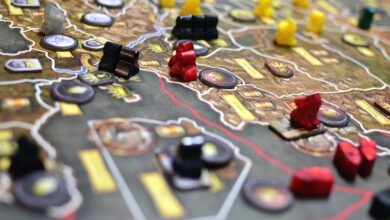Dota 2: Exploring the Intersection of Strategy and Skill in Competitive Gaming

Dota 2, the immensely popular multiplayer online battle arena (MOBA) game developed by Valve Corporation, has taken the world of competitive gaming by storm. With its complex gameplay mechanics, strategic depth, and emphasis on teamwork, Dota 2 has become a hallmark of the esports landscape. The game’s success can be attributed to the delicate balance between strategy and skill that it requires from its players.
At its core, Dota 2 is a 5v5 game where two teams battle it out to destroy the opposing team’s Ancient, a heavily fortified structure located at their respective bases. Each player controls a unique hero, with over 100 to choose from, each with their own distinctive abilities and roles. The diverse hero roster ensures that no two games of Dota 2 are ever the same, requiring players to adapt their strategies constantly.
One of the key elements that sets Dota 2 apart from other competitive games is its deep strategic gameplay. Players must carefully consider their hero selection, team composition, and lane assignments, as well as manage resources such as gold and experience. The game’s strategic depth lies in the ability to make crucial decisions under pressure, such as when to engage in team fights, when to farm for gold, or when to push objectives.
However, strategy alone is not enough to secure victory in Dota 2. The game demands exceptional skill from its players in terms of mechanical prowess and game knowledge. Skill in Dota 2 encompasses a wide range of abilities, including last-hitting creeps, landing skill shots, positioning in team fights, and executing complex ability interactions. These skills require countless hours of practice and a deep understanding of the game’s mechanics.
Moreover, Dota 2 places great importance on teamwork and communication. Effective coordination between teammates is vital for success, as executing strategies and making split-second decisions often hinge on effective communication. This aspect of Dota 2 has contributed to the growth of vibrant esports communities around the world, fostering a sense of camaraderie and teamwork among professional players and their fans.
The competitive nature of Dota 2 has led to the establishment of a thriving esports scene, with major tournaments attracting millions of viewers and offering substantial prize pools. Tournaments like The International, which is Dota 2’s most prestigious event, often see teams from different regions battling it out for supremacy. These competitions showcase the pinnacle of Dota 2 gameplay and provide a stage for players to display their strategic acumen and individual skill.
In conclusion, Dota 2 exemplifies a perfect blend of strategy and skill within the competitive gaming landscape. With its deep strategic gameplay, emphasis on mechanical prowess, and requirement for effective teamwork, the game has captured the hearts of both casual players and competitive professionals alike. Whether you’re a fan of the esports scene or a player looking to sharpen your strategic mind and mechanical skills, Dota 2 offers an engaging journey into the thrilling world of competitive gaming.





